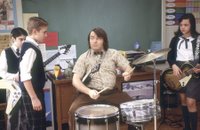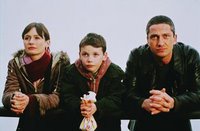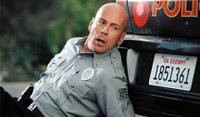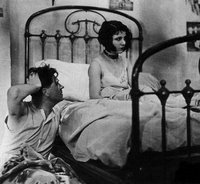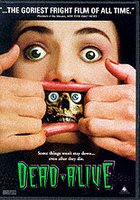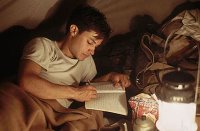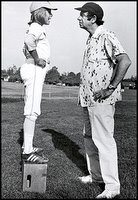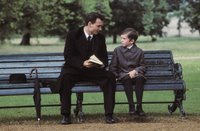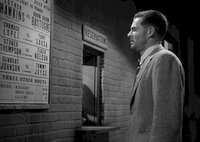
1996, US, directed by Doug Liman
Nearly ten years on, Swingers remains remarkably fresh for a film that seemed to be very much of the male-bonding zeitgeist, a mixture of terminally hip rat-pack posturing and distinctly uncool relationship angst, mostly from the perspective of Mikey (Jon Favreau, who also wrote the script), who straddles the uncomfortable border between depression and obsession six months after a break-up with his long-time girlfriend. He's a recent arrival in Los Angeles, plumbing the lower depths of the comedy business, in the company of fellow East Coast transplant Rob (Ron Livingston) and budding producer/self-styled player Trent (Vince Vaughn, who seemed poised for instant stardom after this film, rather than the half-decade of wheel-spinning that followed), among other hangers-on. It's not surprising that Mike's rise to the top is less than meteoric: his daily routine alternates between bouts of self-pity and nights on the town chasing down the hippest spots. Favreau's script skewers male vanities and self-deceptions remarkably well (although Mike's more irrational tendencies are mildly alarming), while Vaughn, in particular, makes excellent use of some memorable lines: 'You're so money and you don't even know it!' It's fun, too, to see the film send up other indie hits like Reservoir Dogs with both affection and purpose, while there's a sort of bitter-sweet affection for Los Angeles that surely springs from the writer's own experiences on the fringes of 'The Business'.

